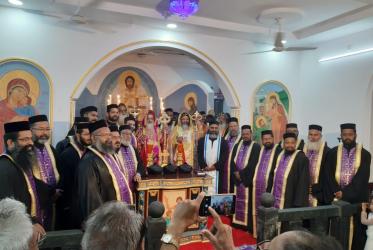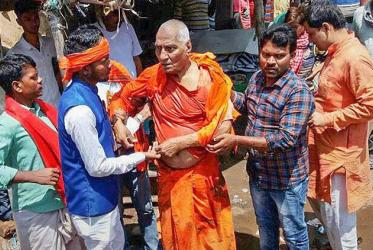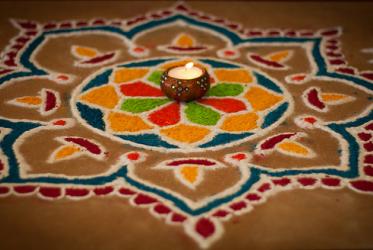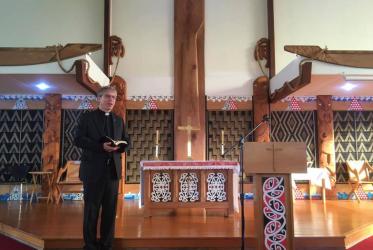Displaying 1 - 20 of 27
In pictures: Week of Prayer for Christian Unity
01 February 2021
WCC general secretary sends greetings on Diwali
06 November 2018
WCC calls for prayer for flood-stricken Kerala, India
18 August 2018
#WCC70: A story of how we meet together
02 February 2018
WCC offers greetings to Hindus celebrating Diwali
19 October 2017
WCC general secretary visits Aotearoa New Zealand
10 October 2016
Indigenous spirituality: can it transform injustice into justice?
01 September 2016
Religion: Way of war or path to peace?
30 June 2016
WCC praises Church of South India as a truly united church
26 November 2015
WCC general secretary sends Diwali greetings to Hindu partners
12 November 2015
Religious leaders urge a ban on fully autonomous weapons
02 April 2015
Christians around the world pray for unity
22 January 2015
Momentum builds for ban on nuclear weapons
16 December 2014












